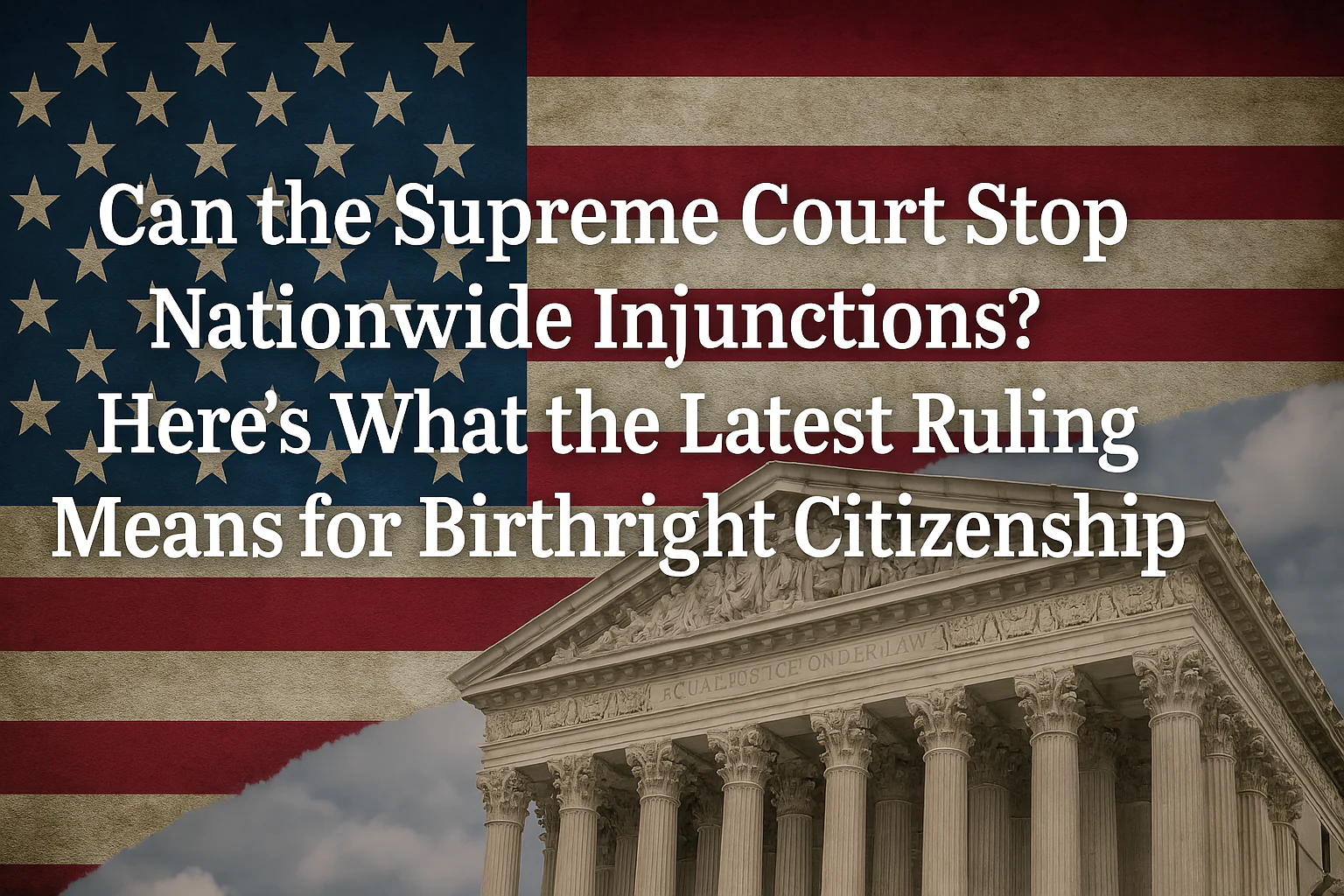Recently, the U.S. Supreme Court put a restriction on the universal (nationwide) injunction, an exceptional decision that has altered the federal court treatment of executive policies. The ruling was made regarding a case that pertained to the executive order issued by President Trump that discriminated against the guaranteed right of birthright citizenship as embedded in the 14th Amendment of the Constitution.
Key Takeaways:
What Happened?
The Court claimed that federal judges cannot apply a nationwide block of policies except when necessary to safeguard individual plaintiffs. The majority who wrote up the case, which was Justice Amy Coney Barrett,6-3, stressed that courts should not exceed their powers.
What Is Birthright Citizenship?
It ensures that any person born on American soil is an American citizen, even though the parents might not be immigrants. There have been several lawsuits because Trump tried to disenfranchise some children in his 2025 order.
What Did the Court Decide?
In the case involving the Citizenship Order, the constitutionality of the same is yet to be determined. The Court has narrowed down preexisting injunctions and provided a direction to the agencies to provide new guidance in 30 days.
Dissenting Voice:
Justice Sonia Sotomayor cautioned that such judicial decisions might undermine the safeguarding of constitutional rights and even called out the urgency of legal recourse, especially class-action lawsuits.
Why This Matters:
The decision will influence the speed at which and the scope to which courts can prevent executive actions that might influence policies regarding immigration, healthcare, national security, and so on.
With lawsuits being launched against the citizenship order, the experts in the legal field are keenly monitoring to find whether this ruling creates a trend to restrict judicial authority in general.




